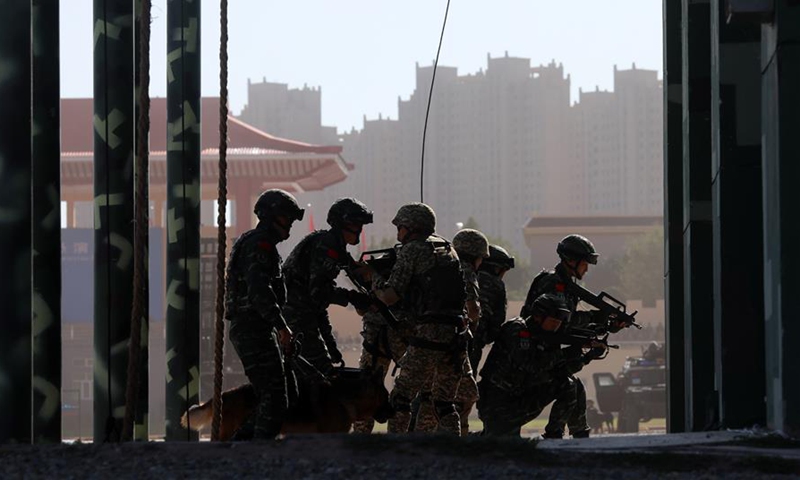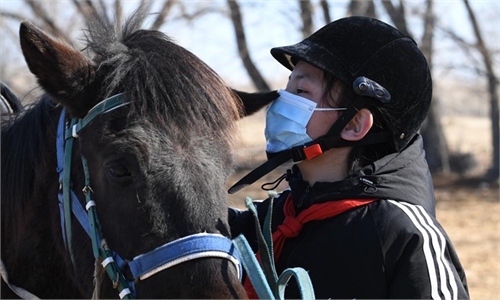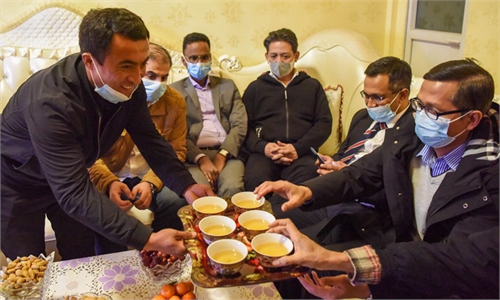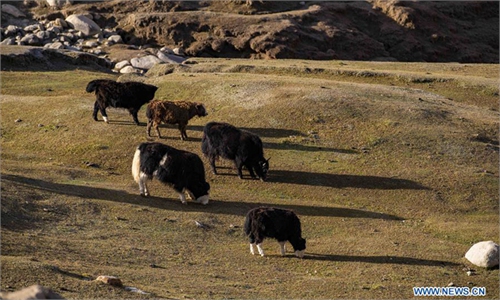Xinjiang regional govt reveals for 1st time details of crimes committed by senior officials who support terrorism

Participants of a joint drill perform an anti-hijacking exercise on Aug. 13, 2019. The joint drill "Cooperation-2019," held by the Chinese People's Armed Police Force (PAP) and the National Guard of Kyrgyzstan, concluded Tuesday in Urumqi, capital of northwest China's Xinjiang Uygur Autonomous Region. Photo: Xinhua
Local authorities in Northwest China's Xinjiang Uygur Autonomous Region on Tuesday revealed the details of crimes committed by some senior officials who loudly condemned the "three forces" of terrorism, extremism and separatism in public, but provided financial and intelligence support for terrorist activities in private. It is believed that this is the first time the regional government has made these details public.
The two officials were exposed in the fourth documentary on the anti-terrorism fight in Xinjiang, which was released on Friday. The documentary contains a number of video clips concerning the region's terrorist activities, cases of "two-faced people" and problematic Uygur textbooks, and for the first time revealed how the East Turkistan Islamic Movement (ETIM) introduced terrorist recordings and videos into China.
One case is related to Shirzat Bawudun, a former high-ranking official in the region, who was later found to be secretly supporting extremist activities linked to ETIM. Shirzat earned the title of "counter-terrorism hero" after being injured in a violent terrorist kidnapping, but later became involved in colluding with key members of ETIM, using his position to benefit his brother's company and providing large sums of money to ETIM.
The other case concerns Sattar Sawut, then head of the regional Education Department, who organized a criminal group to spread extremist ideas and incite ethnic hatred through composing Uygur textbooks, thus facilitating the spread of terrorism and extremism in Xinjiang.
The documentary drew widespread attention from home and abroad after its release. It shows that although there have been no terrorist attacks in Xinjiang for four consecutive years, the region still faces severe challenges from terrorism and extremism. Facts in the documentary refuted fallacious Western lies about Xinjiang, such as "excessive anti-terrorism" and "genocide", and displayed the legitimacy and necessity of anti-terrorism work, Xu Guixiang, deputy director of the publicity department of the Communist Party of China Xinjiang Uygur Autonomous Region Committee, told a press conference on Tuesday.
At the press conference, Wang Langtao, deputy head of the regional High People's Court, revealed that Shirzat was arrested in December 2018. Born in Hotan Prefecture, Shirzat was former deputy secretary-general of the Xinjiang regional committee of the Chinese People's Political Consultative Conference, former head of the regional Justice Department and former deputy secretary of the Political and Legal Affairs Committee of the Xinjiang regional Party committee.
Shirzat was convicted of 10 crimes and sentenced to death with two years' reprieve. The crimes include splitting the country, defecting to the enemy, providing intelligence for overseas terrorism, joining a terrorist organization, aiding terrorist activities, using extremism to undermine the enforcement of the law, gathering a crowd to disturb public order, taking bribes, abusing power, and bending the law for personal gain.
The other criminal, Sattar, then head of the regional Education Department, was arrested in May 2017. He was also sentenced to death with two years' reprieve for committing the crimes of splitting the country and taking bribes.
An investigation found that under Sattar's leadership, thousands of problematic textbooks, which contain contents related to terror, violence and religious extremism and incite ethnic hatred, had been published in the region for over 13 years.
Among the students who were affected by these textbooks were those who plotted and participated in July 5 riot in Urumqi in 2009, in which 197 people were killed and more than 1,700 injured.




